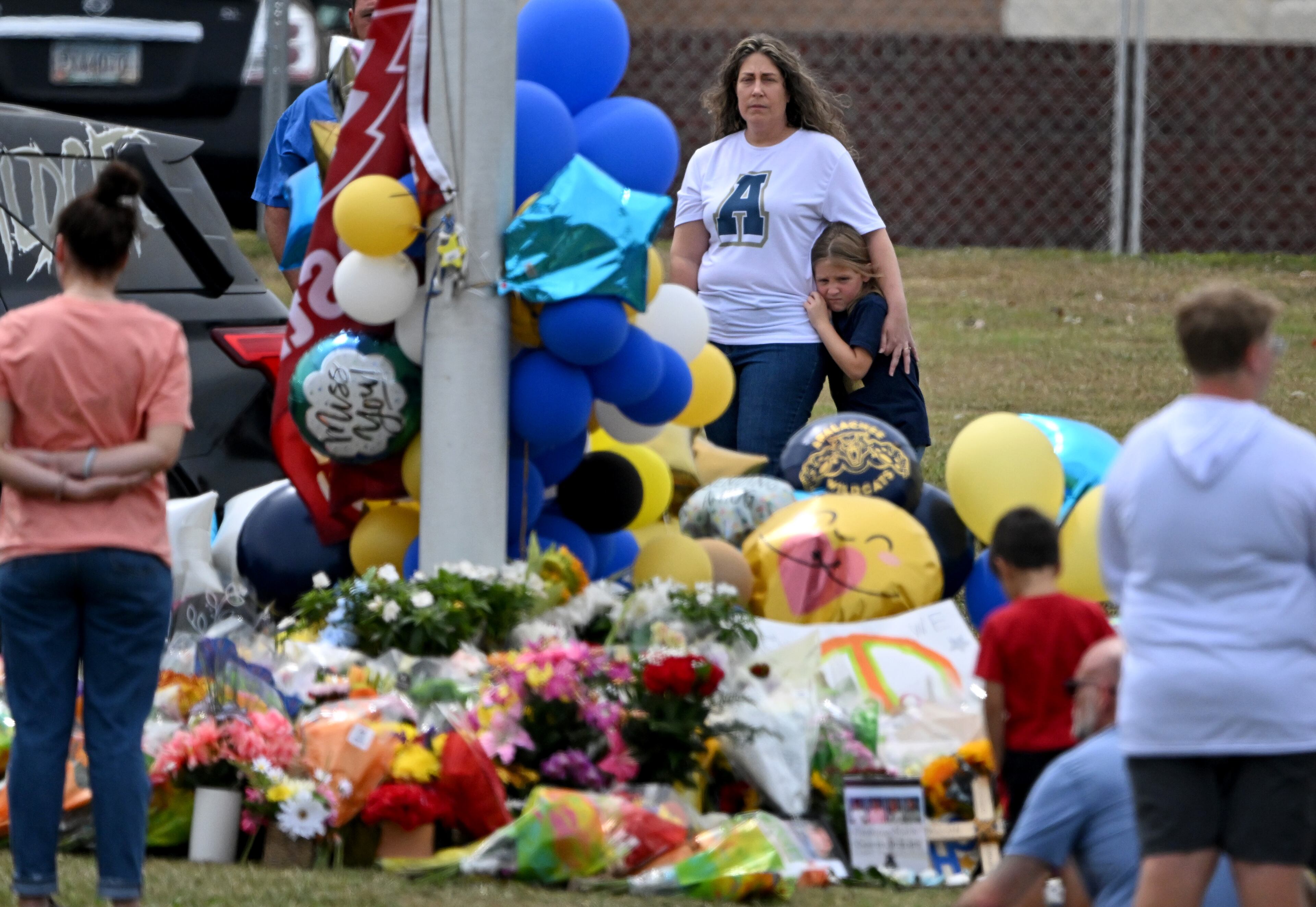How the Apalachee High School shooting could shape the ABC News presidential debate

PHILADELPHIA — Vice President Kamala Harris and former President Donald Trump seem likely to clash over firearms restrictions during a debate today that comes less than a week after a deadly mass shooting at a Georgia high school brought the issue of gun violence back to the forefront.
For much of the campaign, Trump’s allies have tried to center his agenda on the issues of immigration and the economy, which Georgia polls regularly show are among the top voter concerns. Harris and other Democrats have tried to keep their plans to expand abortion rights and fight economic inequality in the spotlight.
But the school shooting at Apalachee High School that left two teachers and two students dead has steered the political conversation back toward a familiar chasm over gun laws that has divided national politics for decades.
A 14-year-old student is charged with using an assault-style weapon to carry out the Barrow County killings. His father, Colin Gray, faces second-degree murder charges over accusations that he “knowingly” gave the teenager access to the semiautomatic gun.
Both Harris and Trump have a chance during the 90-minute debate today in Philadelphia to chart out their plans to deter mass shootings in what could be the final head-to-head showdown between the two. Both campaigns also see it as an opportunity to define Harris before millions of swing independents who are still unfamiliar with her policy stances.
The last debate, held in June in Atlanta, proved to be a pivotal moment in the presidential campaign. President Joe Biden’s underwhelming performance fueled more calls for him to step aside. Within weeks, he withdrew from the contest and endorsed Harris.
Democratic state Rep. Michelle Au, who helps to lead her party’s efforts for a “middle ground” on gun safety policies that can pass Georgia’s GOP-controlled General Assembly, said she’ll be listening for “concrete policy solutions” to meaningfully address shooting violence.
That includes ways to encourage gun safety equipment, broader background checks or proposed “red flag” laws that temporarily take firearms away from gun owners who have been identified as a danger to themselves or others.
“Many gun safety measures have been shown to be broadly effective in other states and are widely popular with voters,” the Johns Creek physician said. “This is low-hanging fruit for any candidate working in good faith.”
A decades-old divide
Within hours of the Barrow County shooting on Wednesday, it was clear that gun violence had swiftly become front and center in the presidential election. Biden and Harris quickly renewed calls to ban assault-style weapons, enact more vigorous background checks and mandate safe storage of firearms.

And both delivered similar messages to large crowds of supporters that Americans shouldn’t accept gun violence as a norm. Harris, who heads the first federal office on gun violence prevention, told a large crowd of rallygoers her mantra: “It doesn’t have to be this way.”
Republicans have mostly echoed Trump in framing the suspect as a “deranged monster” whose mental health struggles contributed to the shooting. Former Cobb County GOP Chair Jason Shepherd pointed to the White House’s announcement Monday that it was putting the finishing touches on new regulations that require health insurance providers to cover mental health issues on the same terms as other care.
“Obviously, gun violence needs to be a key policy issue, but the Biden administration’s announcement that it will focus on correcting deficiencies in the Mental Health Parity Act puts that aspect front and center as a solution to get at the root cause,” Shepherd said.
Trump has positioned himself throughout his campaigns for the White House as a loyal ally of gun owners and manufacturers. When he accepted the National Rifle Association’s endorsement earlier this year, he said he would roll back regulations enacted by Biden and ensure that “radical gun-grabbers will run straight into a very, very powerful brick wall.”
His running mate, U.S. Sen. JD Vance of Ohio, lamented to supporters in Phoenix last week about how school shootings have become a “fact of life” and called for more school security measurers.
“But if you are a psycho and you want to make headlines, you realize that our schools are soft targets,” Vance said. “And we have got to bolster security at our schools. We’ve got to bolster security so if a psycho wants to walk through the front door and kill a bunch of children they’re not able.”
As for Trump, he spoke more broadly about the spate of mass shootings at a Fox News town hall last week.
“It’s a sick and angry world for a lot of reasons, and we’re going to make it better,” Trump said. “We’re going to heal our world.”



